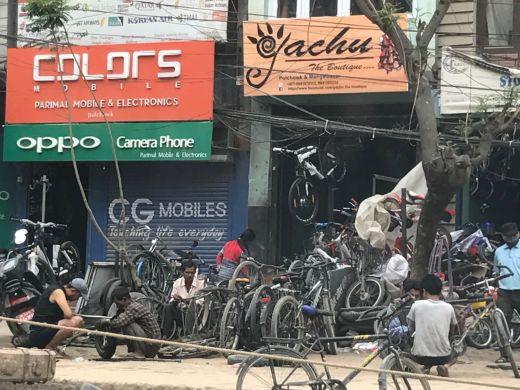Linking Education and Labour Markets: Under what conditions can Technical Vocational Education and Training (TVET) improve the income of the youth?

This project aims to analyse the conditions under which Technical Vocational Education and Training (TVET) improves gainful employment, job quality, and thus income of youth. It develops a framework that describes and measures the social institutions of TVET and focuses on education-employment linkages.
About the project
Background
Many policy makers and international organizations regard technical vocational education and training (TVET) as an efficient means to improve the youth labour market situation. This is particularly true for low- and middle-income countries where youth often suffer from underemployment, low job quality, and low income. However, the empirical literature remains inconclusive about this link. One part of the literature concludes that TVET does not have a statistically significant impact on youth labour market outcomes — especially in the case of low- and middle-income countries. The other part of the literature comes to the opposite conclusion. This ambiguity might arise due to the large heterogeneity of analysed programs in terms of for example target group, length and quality. Moreover, many TVET programs may not be financially or organizationally sustainable in the long run, e.g. because they are fully or largely subsidized by foreign means. In general, we know little about the specific channels that incentivize actors to participate in TVET programs — especially in low- and middle-income countries.
Objectives
The overarching goal of this project is to analyse the conditions under which TVET programs can improve youth labour market outcomes. We argue that the success of TVET programs in terms of labour market outcomes depends on how well they respond to the needs of labour markets. TVET programs need to incentivize all actors including schools, firms, and students to participate and collaborate in TVET. Importantly, all actors must contribute to the quality of the social institutions of TVET governing their collaboration. Where the term “social institutions” refers to the complex social forms that govern actors in the TVET system, their incentives, values, roles, and relationships with each other. Thereby, our main hypothesis is that the success of TVET at improving the youth labour market situation depends on the strength of TVET-related social institutions, i.e. how well TVET actors in TVET-related social institutions coordinate and collaborate. This project aims to improve our understanding of the incentives, values, roles, and relationships of TVET actors.
Relevance
The results of the project shall help showing policy makers in low- and middle-income countries how they can improve the youth labour market situation in their country by strengthening social institutions in formal, non-formal, and informal TVET programs. By incorporating knowledge-transfer activities with TVET policy makers and the wider stakeholder communities in the partner countries — this project aims to influence new policies and the adaptation of ongoing reforms.
Highlights and most important results
To analyse the conditions under which TVET programs can improve youth labour market outcomes, this project focusses on defining and measuring social institutions of TVET and analysing incentives, values, roles, and relationships of actors in TVET-related social institutions. In addition, it aims to measure the youth labour market situation in low- and middle-income countries by developing new and more adequate measures and cheaper surveying methods based on mobile-phone technology. Further, it aims to assess the labour market impact of different TVET programs empirically, e.g. by means of RCTs, and to enhance the implementation and continuation of systemic changes in TVET by analysing success factors of TVET reforms. We mainly apply our theoretical and empirical frameworks to the four project countries: Nepal, Benin, Costa Rica and Chile. These four countries differ substantially with respect to economic development and culture.
We cooperate closely with TVET policy makers, reform leaders and stakeholders by inviting them to participate in the CEMETS Summer Institute of the KOF Swiss Economic Institute (http://www.cemets.ethz.ch/), which brings together reform leaders from all over the world, offering them research-based assistance with their reform cases. In addition, the project team travels to Nepal, Benin, Costa Rica and Chile within the first project period to establish contact with the TVET stakeholders and systems of each of these countries and to disseminate research results.
In August 2018, the research team from Nepal launched the two-year Master in Technical Vocational Education and Training (MTVET) at the Kathmandu University School of Education, aiming to prepare TVET system leaders, educators, planners and researchers specializing in TVET. The first cohort of master students started in August 2018, a new cohort will start in August 2019. The project will also finance the participation of two persons from Benin in the MTVET program. In January 2018, the Principal Investigators went for a study trip to Costa Rica, in October 2018 to Benin.
Geographic scope
- Benin
- Chile
- Costa Rica
- Nepal
Project website and links to P3
- Link to project website
- Links to project phase
) and to project phase
) on SNSF research database P3.
